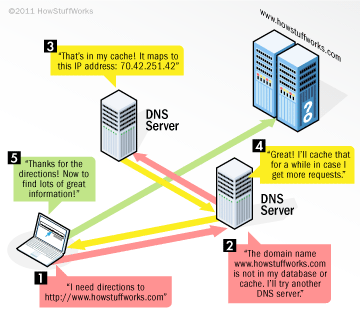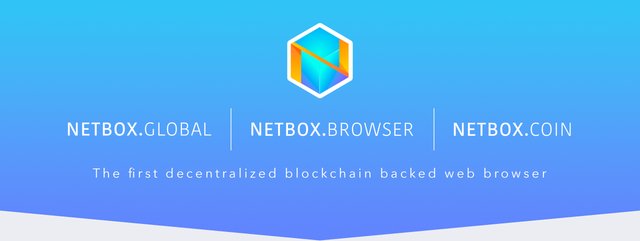
Preface
Nowadays, it has been observed how internet users are really conscious of how their personal data are handled when they are on the internet. Technology has made lives much easier that most people heavily rely on internet to carry out their daily activities. For instance, one can virtually be working in the US while his or her physical location maybe somewhere in Africa. How amazing this is! Internet users uses this powerful tool for various activities such shopping, banking, teaching and learning, etc. Interestingly, most of these activities are made possible via web browsers.
What is a Web Browser?
In simple terms, a web browser is a software application that allows users to request and view information from the World Wide Web. Technically, a web browser is responsible for rendering HTML documents residing on a web server. For instance when a user requests for a specific website which is made up HTML, CSS, JavaScript etc. the browser translates these codes into human readable form and displays it on our screens.

A diagram of how the browser works by Anthony la’O
Early browsers that were introduced were mainly text-based. Today, with the help of technology, browsers are able to display interactive content, graphical content and a whole lot. As of March 2019, more than half of the world’s population make use of a browser. This stats has something do with the increase in number of smartphone purchase as all cell phones comes with a pre-install browsers.
Categories of Web Browsers
After going through what a web browsers is, we take another bite by looking at the categories of browsers. For the purpose of this article we are going to discuss the two categories of web browsers i.e. Centralized and decentralized web browsers.
Centralized browsers: These are browsers that are developed and manage by large institutions. They are also the widely use browsers currently and accounts for about 99% of browsers in the world today. Examples may include Chrome, Firefox, Internet explorer, Safari etc. Centralized browsers are designed in a way to monitor user’s behavior and capture user preferences which are used for commercial purposes. Have you ever wondered why after browsing the internet, the next time you log back on, you see advertisement that relate to what you were previously doing? This is as a result cookies store on your computer by the browser.
Decentralized browsers: These are the next generation browsers that leverages the blockchain and decentralization approach. With these categories of browser, there are no central authorities and they also ensure transparency. Users of decentralized browsers gets to decide who and how their personal data is transmitted and to who.
How Centralized web browsers are a threat to our privacy and security

I hope by now we all have a gist of what both browsers are and how they function. Now we are going to look at centralized browsers and how they posed as threat to our privacy.
Internet cookies are files stored on your computer by web browsers whenever a user visits a website. Initially they were made as a means to help websites remember a user, preference etc. when he/she re-visits. These information may include items in your shopping cart, logging in, pages visited, IP address of your device, and login information (names, addresses, and credit card numbers). There are two types of cookies namely session cookies which delete it’s when the browser is closed and permanent cookies which stay on your computer so long as you don’t delete it.
Some cookies are classified as malicious cookies which an example is the third-party cookies. As the name implies, these cookies are designed to store and track users’ online activities. It monitors surfing behavior over a period of time and builds a profile of the users. The data may include but not limited to browsing activities, demographic data, and sometimes statistical information among others. Once a user’s online profile has enough data, they are sold to advertisement companies> this way, advertisers can target relevant ads to specific users.
NetBox.global – The First Blockchain-based Browser

NetBox.global is a blockchain startup that is building an infrastructure to help address some of the challenges we face in real world. We are going to concentrate on few of its products. Most importantly, the Netbox.browser. This is a modern day browser built on the blockchain. Unlike the others, what is fascinating about the browser is its incentive model and how it upholds transparency and security. One the greatest issues the blockchain address is security and we all know whenever the topic of internet is raised what comes in mind are issues pertaining to security and privacy.
The NetBox.global infrastructure is made up of decentralized applications. Some of these application interoperates to provide a serene ambience for surfing the net. The netbox.browser is a distributed application that works as a node to ensure proper functioning of the netbox.chain. The nodes are responsible for validating blocks and this is made possible by prove of stake (POS) consensus algorithm. In order to have a reliable network, there must be a large number of netbox.browser users across the globe. Because there are no central authorities the browser gives full control to users to manage their data when online. As a way of incentivizing users, a node is awarded with $NBX coins (native coin of the NetBox.chain) proportional to the amount of currency issued as a guarantee.
Furthermore, the NetBox.browser comes with an inbuilt wallet which makes it easy for users to receive and manage their $NBX. It also support other cryptocurrencies like bitcoin and has exchange functionality.
The Netbox.Proxy is an additional tool which can be used in conjunction with the Netbox.browser to provide a complete anonymous and untraceable access to the internet. The Netbox.Store and Netbox.Trust are other dApps that are security inclined.
Conclusion
NetBox.global is embarking on journey worthwhile. As part of their efforts to find solution to our internet browsing discomfort, it our collective responsibility to support this course in any way we can. Download the netbox.browser today and have a feel of the network for decentralized and holistic browsing experiencing.
Community Stats.
- Website: 61599 visit per month
- Twitter: 5,597 Followers
- Telegram: 13 577 members
- YouTube: 236 subscribers
News Updates
- New Team member & Netbox.Global Advisor — Mr. Dmitriy Sheludko: https://medium.com/@NetboxGlobal/new-team-member-netbox-global-advisor-mr-dmitriy-sheludko-b055056d6e3
- NetBox.global projection in the next 2 years — youtu.be/DwxlzmMcOUk
- Partnership with IOST — https://medium.com/@NetboxGlobal/exciting-integration-with-iost-is-on-the-way-b6814bde5d4c
#NetboxGlobal #Netbox #NBX #Netbox
For more information, please visit the Site Below:
Situs=> https://netbox.global
Twitter=> https://twitter.com/netboxglobal
Telegram=> https://t.me/netboxglobal
Perselisihan=> https://discordapp.com/invite/GCgZZPN
Linkedin=> https: // www.linkedin.com/company/netboxglobal/
Medium=> https://medium.com/@netboxglobal
YouTube=> https://www.youtube.com/channel/UCIAUgPvyihTcsqYSM264iIg
GitHub=> https://github.com/netboxglobal
Author:
BTT username => lani1123lani
Bitcointalk Profile => https://bitcointalk.org/index.php?action=profile;u=1220105
ETH Address => 0xaeC6B59a69a13FBea61AC87b27Cc50d8F594F923